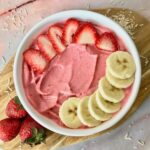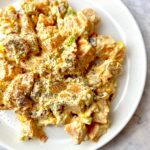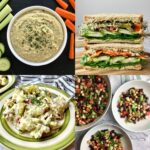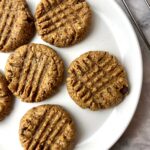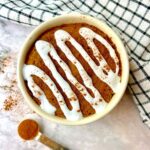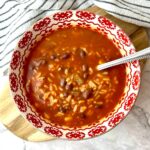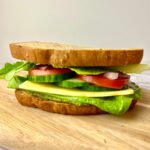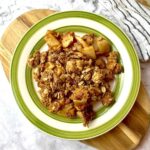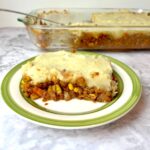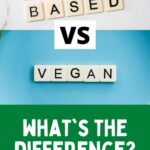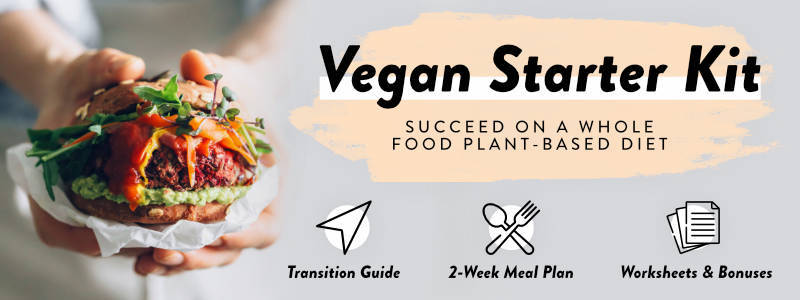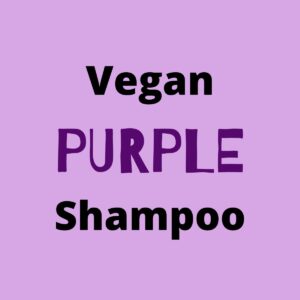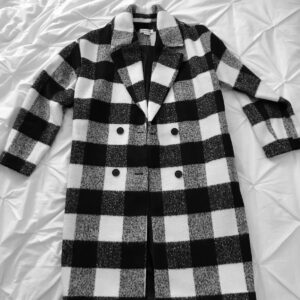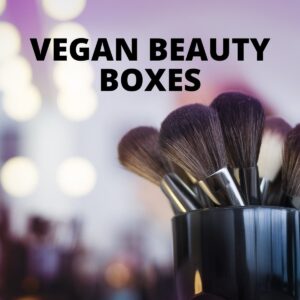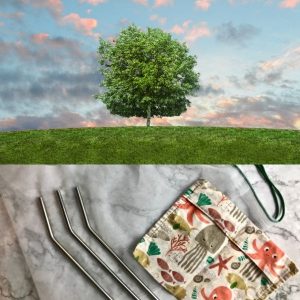This post contains affiliate links for which I may earn a commission (at no extra cost to you) should you make a purchase. As an Amazon Associate I earn from qualifying purchases. Please see my disclaimer for more information.
Plant-based diets and veganism are becoming more and more popular, but what do these terms really mean? Many people use the terms plant-based and vegan interchangeably, however there are some differences.
Short answer: Plant-based is a way of eating that eliminates animal products. Vegan encompasses more that just avoiding animal products in food, but also reducing animal cruelty as much as possible by not buying anything that contains animal-derived ingredients or that was tested on animals.
Keep reading for a more detailed explanation.
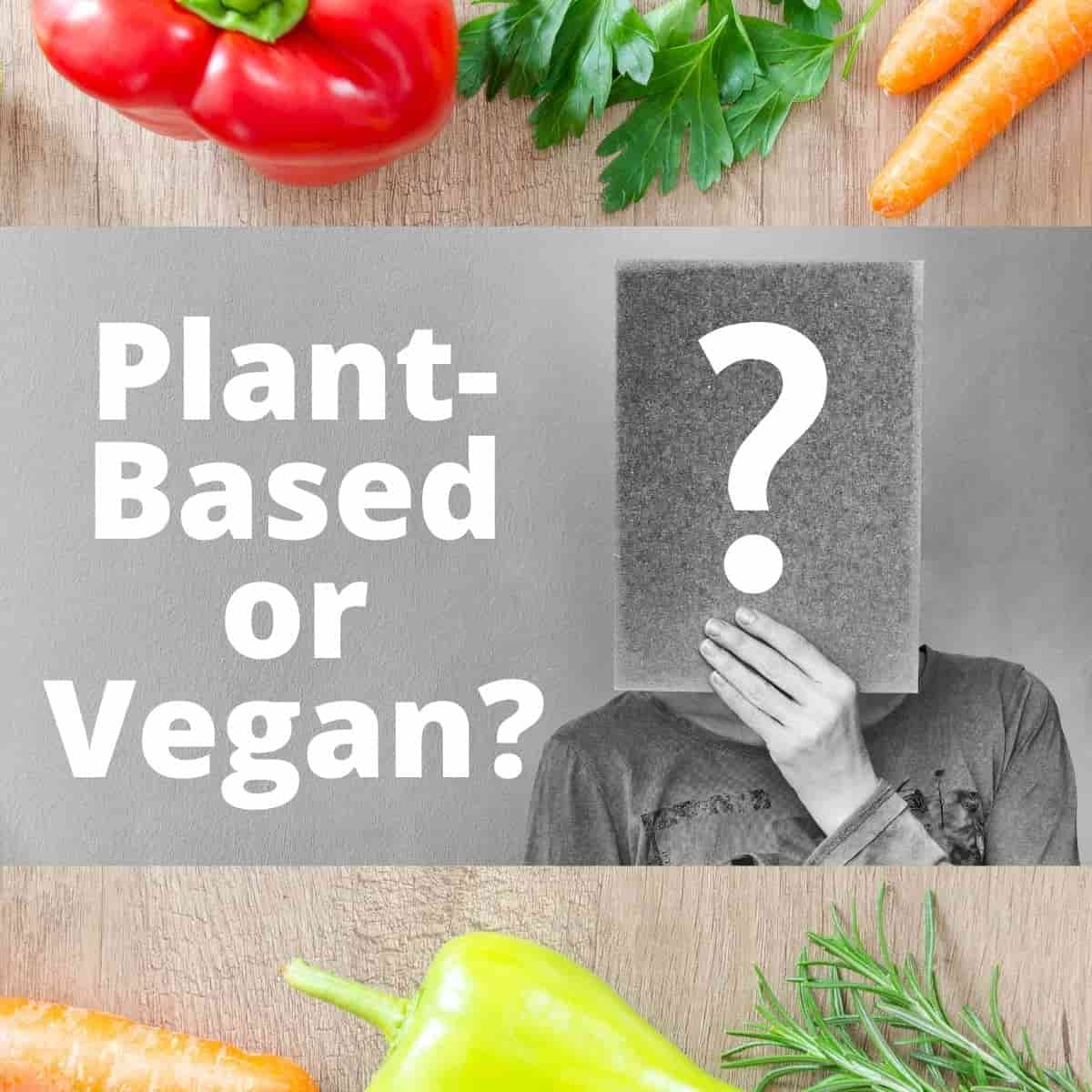
What does plant-based mean?
Plant-based refers to a diet that does not include any animal products. Some people consider a plant-based diet to be completely free of animal-based foods, while others consider plant-based to mean that most food is free of animal products.
For example, some people say that they eat a plant-based diet if they eat 80% plant-based food and only 20% animal products - usually dairy or eggs. I would call this a mostly plant-based diet.
But the true definition of plant-based is something that is made with only plants. So when I speak of a plant-based diet, I am referring to eating no animal products at all.
An entirely plant-based diet eliminates:
- All meat (beef, chicken, fish, etc.)
- Dairy (milk, butter, cream, etc.)
- Eggs
- Honey
To ensure that these ingredients are eliminated from your diet, you will have to check the ingredients on packaged products. For example, many chips are plant-based, but some contain dairy.
On a plant-based diet, you can eat:
- Fruits
- Vegetables
- Grains
- Legumes
- Nuts and seeds
- Plant-based alternatives for meats and cheese
- Any packaged products that don’t contain animal products
Many people who are plant-based are doing so for health reasons, but it is a misconception that all plant-based food is healthy.
Processed food that is made without animal products fall into the category of plant-based, but they aren’t healthy. For example, you can find packaged cookies, chips, fake meats and cheeses, and more that are plant-based.
If you want to eliminate animal products for health reasons, you should stick to a whole-foods plant-based diet as opposed to just plant-based. More on that below.
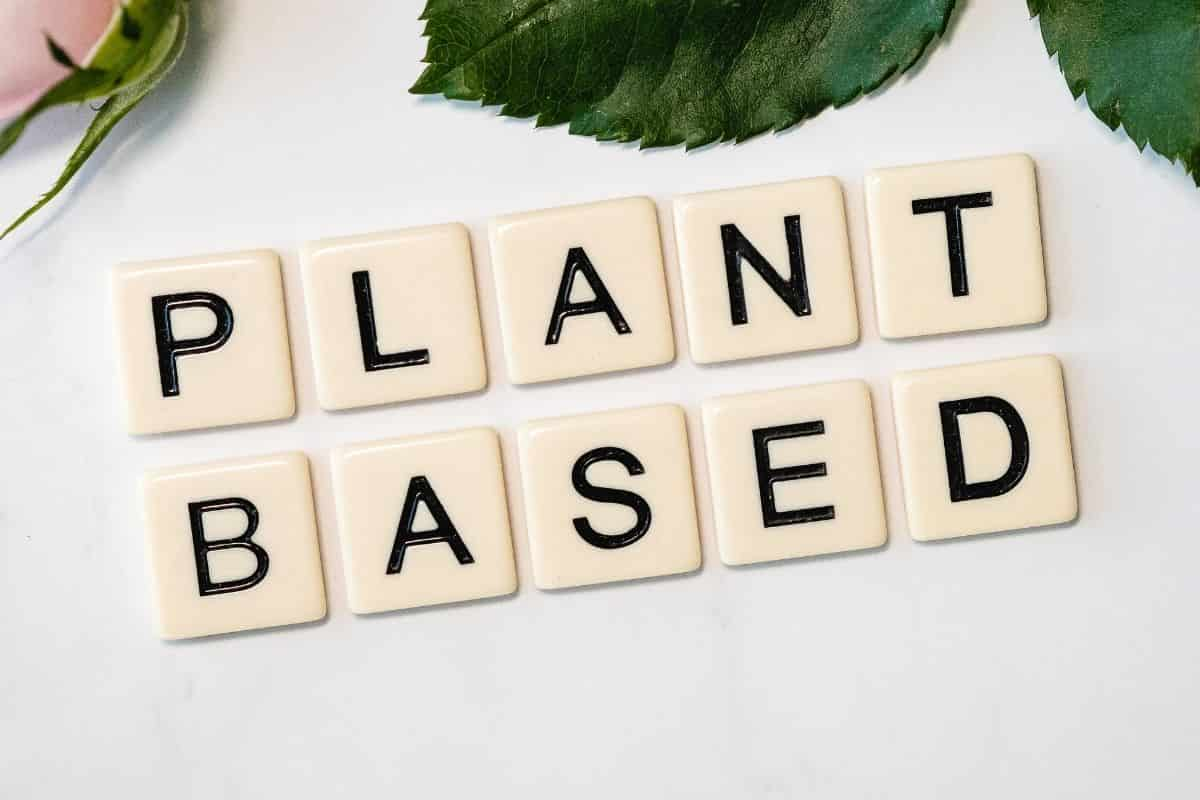
When did the term "plant-based" come into use?
Plant-based diets have become more popular in recent years due to documentaries and research that shows the health and environmental benefits or eliminating animal products from your diet.
It is unclear when the term plant-based was first used, but Thomas Colin Campbell used the term for his research about a diet free of animal products. He used plant-based instead of vegan to make it clear that his research was not about ethics, but solely about science and the health implications of eating plant-based.
For information about the results of Dr. Campbell's research, you can check out his book, The China Study.
Many food companies choose to use the term plant-based instead of vegan because it attracts more customers. Unfortunately, many people are against veganism because they think it is too extreme, and they don’t want to associate with the word vegan.
Some people also fall into the trap of thinking that “plant-based” is always healthy, which is why many food companies prefer it over vegan.
What is whole-foods plant-based?
Whole-foods plant-based refers to a plant-based diet that is focused on health. This diet eliminates all animal products, as well as any heavily processed foods.
Minimally processed foods such as plant-based milks are often accepted, but things like store-bought vegan burgers are not.
This means no oil and no packaged treats (even if they are plant-based).
Foods that are accepted on a whole-foods plant-based diet are considered whole because they are either unprocessed or very minimally processed. This includes:
- Grains
- Beans and Legumes
- Nuts and Seeds
- Fruits
- Vegetables
For help getting started with a whole-foods plant-based diet, you may want to check out this plant-based grocery list.
If you are looking for a full guide to help you get started with a plant-based diet, you can check out this Vegan Starter Kit. It includes a 14-day meal plan and plenty of information about the benefits of a plant-based diet.
You may also want to check out some other plant-based diet books here, for additional information on the health benefits.
What does vegan mean?
Being vegan encompasses more than just what you eat. The motivation to be vegan doesn't come from a place of wanting to improve your health or the environment, although these can be additional reasons a person is vegan.
The main motivation is to reduce animal suffering as much as possible.
So if you don’t eat any animal products, but you buy leather shoes, you would be plant-based.
When you are vegan, you take into consideration every single thing you buy - not just food.
The Vegan Society gives the following definition of veganism:
“Veganism is a philosophy and way of living which seeks to exclude-as far as is possible and practicable-all forms of exploitation of, and cruelty to, animals for food, clothing or any other purpose.”
Vegans ensure that they don’t buy products tested on animals or products that contain any animal-derived ingredients.
For example, when going vegan you may need to switch up the following products:
- Toothpaste
- Deodorant
- Face wash
- Soap
- Shampoo and Conditioner
- Cleaning products
- Laundry detergent
- Clothing (no wool, silk, or anything else that comes from an animal)
Unfortunately, many personal care and cleaning products are tested on animals even if they don’t contain animal-derived ingredients. Someone who is vegan would look into a company and see whether they are cruelty-free or not, before making a purchase.
For more information about veganism, check out this article on going vegan for beginners.
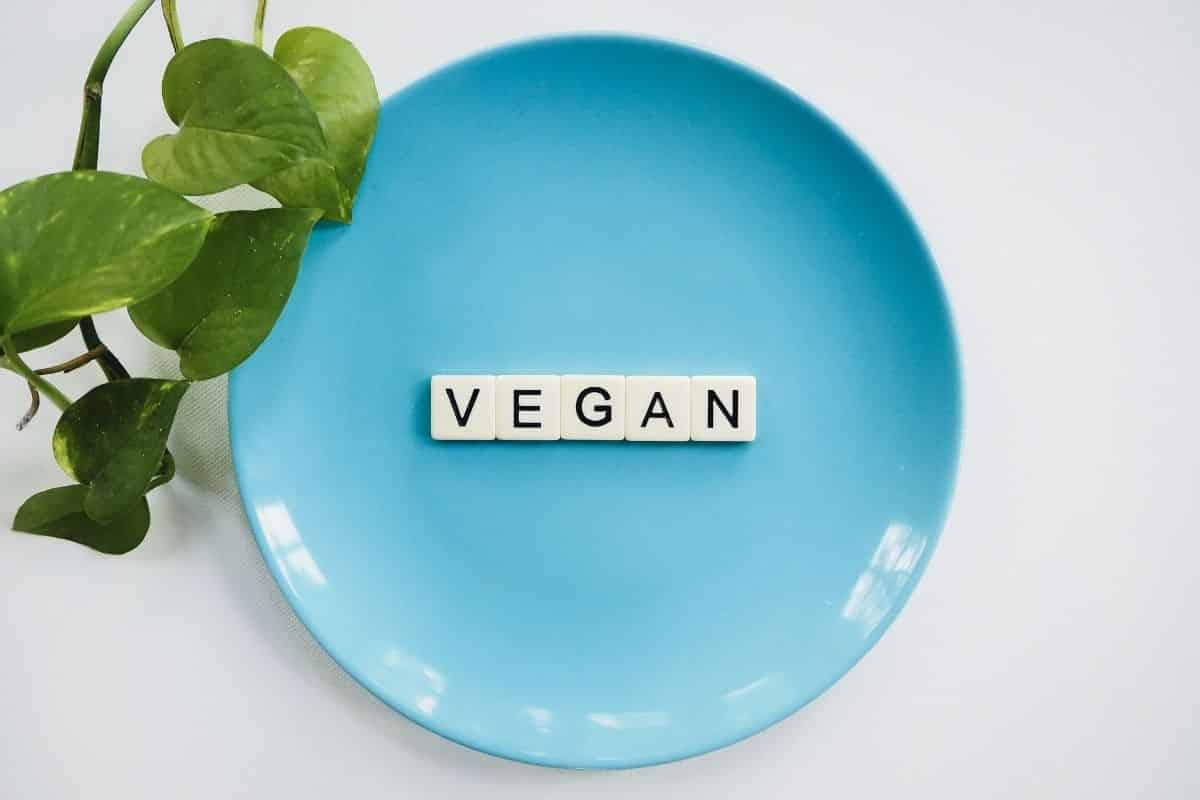
When was the term “vegan” created?
According to The Vegan Society, the word “vegan” came from a small group of people in 1944 who wanted to make a new word to distinguish themselves from vegetarians.
Donald Watson came up with the word explaining that it is a combination of the beginning and ending of the word “vegetarian.”
To read more about the beginning of veganism, check out this article about the history of vegans, from The Vegan Society.
Can you be both?
Of course! Anyone who is vegan is automatically eating a plant-based diet. This doesn’t necessarily mean they are eating a whole-foods plant-based diet, but they could be.
However, someone who eats plant-based isn’t automatically vegan.
Some people start with just one or the other and end up being both. For example, I started out by eating a plant-based diet purely for health reasons. I wasn’t initially vegan because I was still buying products that were tested on animals, buying non-vegan shoes, etc.
I eventually started thinking about animal cruelty and realized that I wanted to eliminate my contribution to animal suffering as much as possible. So I started out being just plant-based, and ended up being vegan!
How to get started with a plant-based diet
If you’re interested in learning about what it means to be plant-based or vegan, I assume you may be interested in eating a plant-based diet yourself!
Getting started can feel overwhelming, but there are so many great recipes and meal guides to help you!
You can check out this plant-based grocery list if you want to start a healthy, whole foods plant-based diet.
Here are some basic meal ideas:
Breakfast:
- Oatmeal with berries, peanut butter, coconut flakes, flax seeds, etc.
- Smoothies (I like to use spinach and whatever frozen fruit I have on hand. Add chia seeds for extra protein and use plant-based milk or water to blend).
- Tofu scramble
Lunch or Dinner:
- Rice bowls (Brown rice, beans of choice, and some veggies sautéed with water and tamari).
- Burrito bowl
- Collard wraps
- 3 bean chili
Snacks:
- Raw veggies with hummus (try this dill pickle hummus)
- Raw fruit (apples with peanut butter is a great snack!)
- Plain popcorn with seasoning of choice sprinkled on it
- A couple of dates stuffed with peanut butter
- Cookie dough bites
If you want an in-depth guide and a 14-day meal plan, I highly recommend this Vegan Starter Kit. It will teach you everything you need to know and walk you through your first two weeks of eating completely plant-based.


